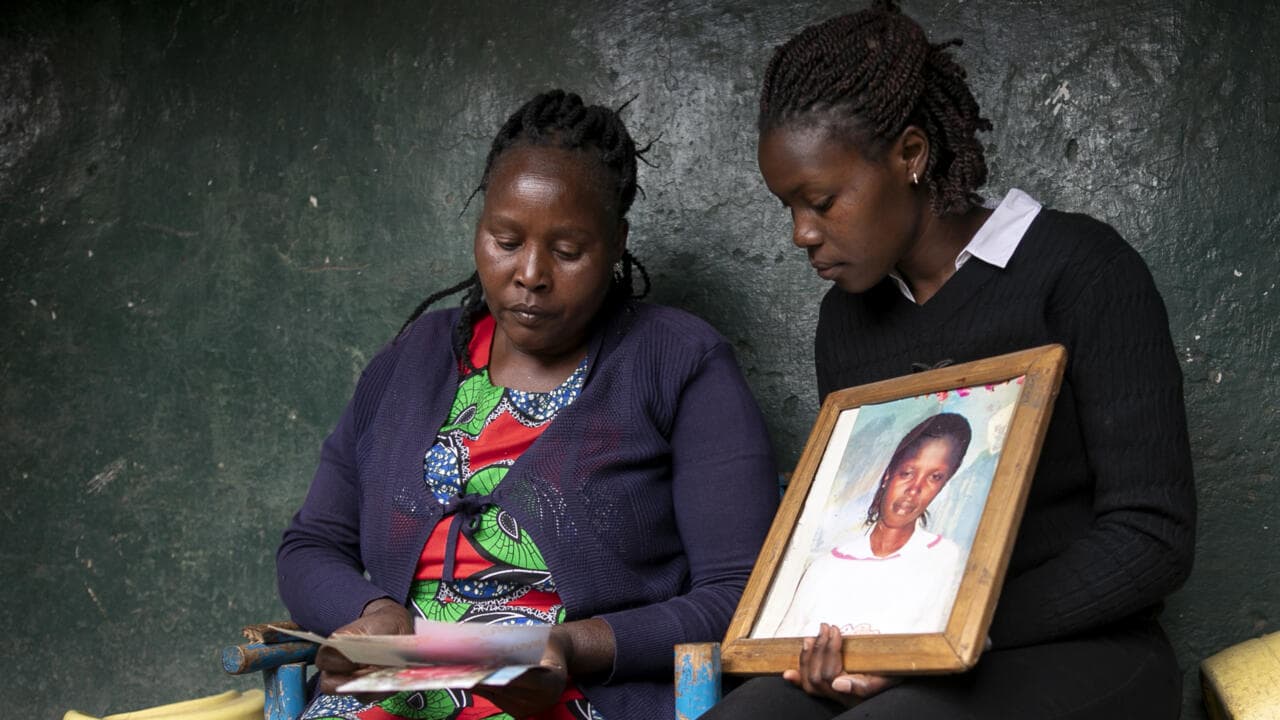We're loading the full news article for you. This includes the article content, images, author information, and related articles.
Esther Njoki, niece and spokesperson for the late Agnes Wanjiru's family, is pressing the UK Labour government for the swift extradition of a former British soldier accused of her aunt's 2012 murder, citing renewed hope under the current administration.

Esther Njoki, the 21-year-old niece and spokesperson for the family of Agnes Wanjiru, has made a direct appeal to the United Kingdom's Labour government to expedite the extradition of a former British soldier charged with her aunt's murder. Njoki, on her first trip outside Kenya, met with UK Defence Secretary John Healey in London on Tuesday, October 14, 2025, urging him to prevent delays in the potentially lengthy extradition process.
Njoki expressed optimism about the current UK government's approach, noting a significant change since Labour came to power last year. She fears that progress in the decade-long pursuit of justice could falter under a different administration. "We are hoping that before his time ends and they get out of government he will have achieved what he wanted to achieve in Agnes’ case," Njoki stated.
Agnes Wanjiru, a 21-year-old hairdresser and mother, disappeared in Nanyuki, Kenya, in March 2012 after a night out with British soldiers. Her body was discovered several weeks later in a septic tank on the grounds of the hotel where she was last seen. A post-mortem examination concluded she died from stab wounds to her chest and abdomen, with evidence of beating.
The case has been the subject of multiple inquests and inquiries, but a suspect was only formally identified recently. In October 2021, The Sunday Times newspaper reported that a soldier had confessed to comrades about killing Wanjiru, and alleged that the murder was reported to military superiors but no action was taken.
Last month, a Kenyan court issued a warrant for the arrest of Robert James Purkiss, a former British soldier, charging him with a single count of murder. Kenyan prosecutors have indicated that extradition proceedings will be initiated to bring Purkiss before a Kenyan court.
For Purkiss to face trial in Kenya, an extradition request must be formally submitted by the Kenyan government to the UK Home Office, certified by the Home Secretary, and then sent to the UK courts. Extradition cases are typically heard at Westminster Magistrates' Court. Legal experts suggest that such an extradition process could take up to five years following an arrest in the UK.
Esther Njoki, who was eight years old when her aunt was killed, has become a vocal advocate for justice, driven by the desire to see accountability for Wanjiru's now 13-year-old daughter. Njoki believes that British soldiers have historically been protected by the internal systems of the army.
During her meeting with Defence Secretary John Healey, Njoki urged the UK government to ensure Purkiss is arrested and extradited without further delay. Healey reiterated the UK government's "steadfast support for her family's long and painful fight for justice" and pledged continued support for the Kenyan investigation.
The extradition process is complex and could face significant legal challenges. A previous case in 2020 saw a London court decline to extradite a Kenyan politician due to concerns over Kenya's prison conditions and the sluggishness of its justice system. This precedent highlights potential hurdles for the current extradition request, although the circumstances of the cases differ.
The ongoing presence of approximately 200 British military personnel permanently based in Kenya, primarily for training Kenyan soldiers, underscores the diplomatic sensitivities surrounding this case. The outcome of the extradition proceedings could impact future military cooperation and perceptions of justice for crimes allegedly committed by foreign personnel on Kenyan soil.
While a Kenyan court has issued an arrest warrant, the charges against Robert James Purkiss are not yet proven. Purkiss has previously denied the allegations. The timeline for the UK's response to the extradition request remains uncertain, and the legal battle could be protracted. The extent to which the UK government will actively facilitate or potentially challenge the extradition is a key unknown.
The case is scheduled for a mention hearing in a Kenyan court on Tuesday, October 21, 2025. Following the formal extradition request from Kenya, the UK Home Office will need to certify it, and the case will proceed through the British legal system.
All eyes will be on the UK government's response to Kenya's extradition request and the subsequent legal proceedings in British courts. The commitment of the Labour government to a swift resolution, as urged by Agnes Wanjiru's family, will be closely scrutinised. The case's progression will set a significant precedent for how alleged crimes by foreign military personnel in Kenya are handled.
Keep the conversation in one place—threads here stay linked to the story and in the forums.
Sign in to start a discussion
Start a conversation about this story and keep it linked here.
Other hot threads
E-sports and Gaming Community in Kenya
Active 9 months ago
The Role of Technology in Modern Agriculture (AgriTech)
Active 9 months ago
Popular Recreational Activities Across Counties
Active 9 months ago
Investing in Youth Sports Development Programs
Active 9 months ago